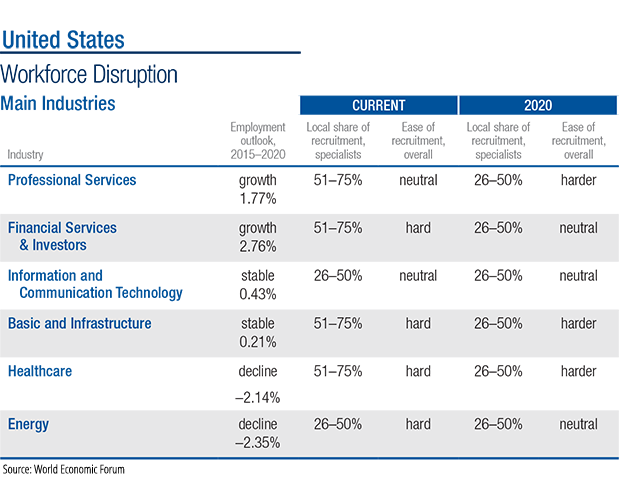If a plummeting stock market and possible global recession isn’t enough to make you hide under the covers, a new report from the World Economic Forum just might.
The “Fourth Industrial Revolution” is already underway and it’s not looking too promising for your job.
 Over the next five years, automation and robots will eliminate 5.1 million jobs globally, according to a new report from the World Economic Forum. The findings are based on a survey of 15 economies that account for about 65 percent of the world’s total workforce.
Over the next five years, automation and robots will eliminate 5.1 million jobs globally, according to a new report from the World Economic Forum. The findings are based on a survey of 15 economies that account for about 65 percent of the world’s total workforce.
Related: How Robots Could Put Workers on Panera’s Bread Line
The jobs that are most at risk are office and administrative roles, which are expected to be impacted by “a perfect storm of technological trends,” the report reads. The trends the report is referencing are the mobile internet, cloud technology, Big Data analytics and the Internet of things.
Other sectors that also stand to lose jobs include office and administrative, manufacturing and production, construction and extraction, installation and maintenance and the arts and entertainment.
Each industry will also face job losses, although the impact will vary considerably. The biggest negative losses will most likely occur in healthcare, thanks to the rise of telemedicine, followed by energy and financial services.

Technology alone isn’t the only force that’s driving job change, though. Other factors that will make it unreasonable to retain a large workforce in the coming years include climate change, resource efficiency and workplace flexibility.
Related: The Ten Craziest Things Robots Can Do
Although the report found that job losses will hit men and women equally by net percentages, with 48 percent for women and 52 percent for men, it will be felt more acutely by women because the male workforce is larger. While men will see about one job gained for every three lost over the next five years, women will lose five jobs for every one job gained.
But the report isn’t all gloom and doom. About 7.1 million jobs will be lost, but these losses will be offset by the addition of 2.1 million new jobs. The main sectors that will see job growth are business and financial operations, management, computer and mathematical and architecture and engineering.





